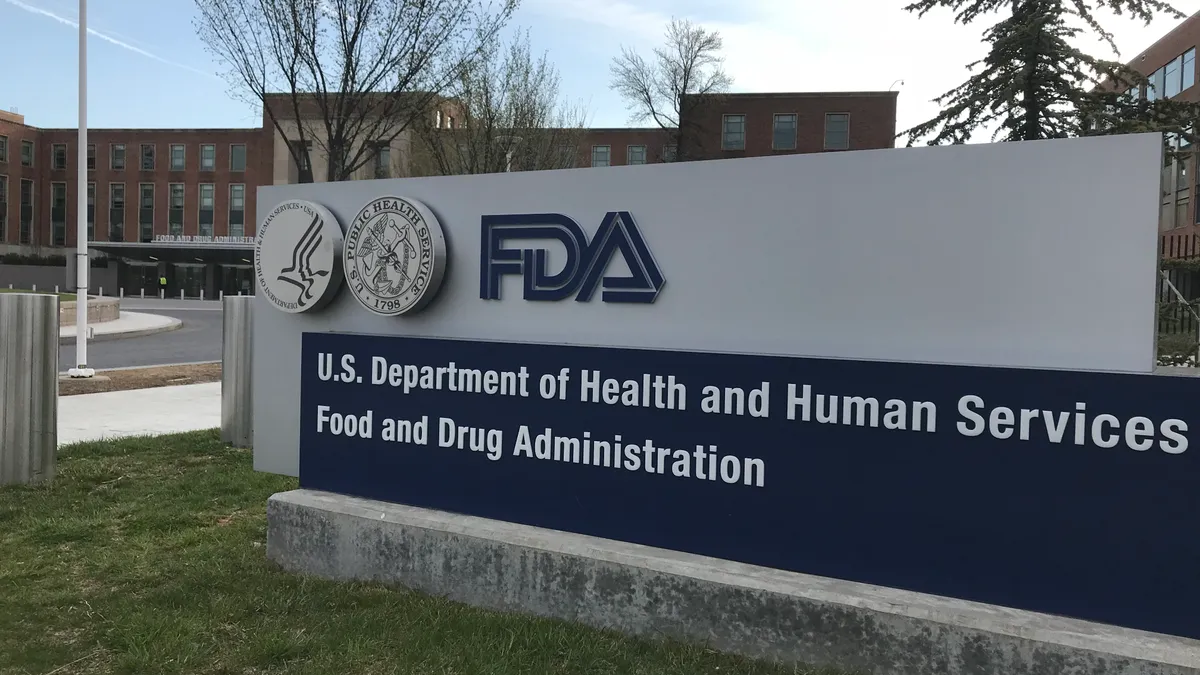Dive Brief:
- Device maker Endologix said Friday it is voluntarily recalling the existing inventory of its Nellix endovascular aneurysm sealing (EVAS) system after determining off-label use of the device had led to "suboptimal" results for patients. The company's stock, which slid below $2 in September, fell more than 15% on Friday to close at 60 cents a share on Nasdaq.
- Going forward, the Nellix system will be available for use only under clinical protocol, within current indications, in patients who are pre-screened by a physician panel, the Irvine, California-based company said.
- Nellix has performed well when used within its indications, according to independently adjudicated data from the EVAS1 investigational device exemption (IDE) trial, the company said. However, other reports have raised concerns about suboptimal results when the device is used outside current instructions for use, Chief Medical Officer Matt Thompson said in a company press release.
Dive Insight:
An abdominal aortic aneurysm (AAA) is a swelling of the aorta, the main blood vessel from the heart to the rest of the body. The bulge can leak or rupture if weakened; a ruptured AAA causes internal bleeding that is usually fatal.
In traditional open surgery to repair an AAA, a graft can be sewn into the aorta above and below the bulging section. Endologix is among companies developing alternative, minimally invasive approaches to treating AAA called endovascular aneurysm repair (EVAR), in which a catheter is threaded up to the aneurysm.
However, Endologix has faced challenges with an earlier EVAR device called the AFX Endovascular AAA system. Reports of endoleaks with the device, in which blood flows into the aneurysm sac, prompted Endologix in October to recall that product. Though most reports linked the endoleaks to older versions of the AFX system that used a graft material called Strata, the company recalled all of its AFX devices.
Endologix's Nellix device takes a different approach to AAA repair called endovascular aneurysm sealing. According to the company, EVAS was designed to overcome the durability issues of EVAR that have led to high rates of aneurysm-related mortality compared to standard surgery.
Endologix received CE Mark approval in September 2017 for the Nellix Endovascular Aneurysm Sealing System. In October 2017, it received IDE approval from the FDA for the EVAS2 clinical study.
Before that, in June 2017, the company reported positive two-year data for the EVAS IDE trial. In that study, the sealing system showed 94% freedom from endoleaks, 97% freedom from rupture and 99% freedom from cardiovascular mortality among among patients.
Endologix CEO John Onopchenko, in the company's statement on the Nellix recall, said the current level of off-label use of the device cannot continue, and the company is working with regulatory authorities to help ensure patient safety and continued appropriate access to the treatment, in alignment with a recent publication by the European Society for Vascular Surgery.









